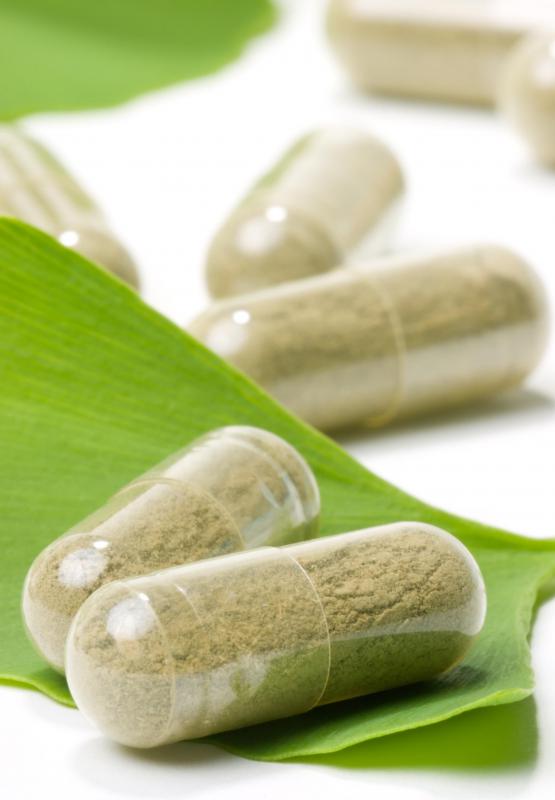At WiseGEEK, we're committed to delivering accurate, trustworthy information. Our expert-authored content is rigorously fact-checked and sourced from credible authorities. Discover how we uphold the highest standards in providing you with reliable knowledge.
What is Pycnogenol®?
Pycnogenol® is an herbal supplement that is derived from the Pinus pinaster ssp. atlantica tree, which is native to southwestern France. There are several molecules within the extract that have medicinal value. It has been recommended for the treatment of several ailments. The most promising research indicates that Pycnogenol® is a beneficial treatment for the symptoms of asthma and varicose veins. Like with any herbal supplement, Pycnogenol® may interact with medications, especially drugs that lower blood pressure.
Oligomeric proanthocyanidins (OPCs) are a group of molecules found in the bark of P. pinaster ssp. atlantica. They have medicinal value, especially for the treatment of leg pain and swelling resulting from poor circulation. OPCs are classified as flavonoids, which are naturally occurring pigments in plants.

Pycnogenol® contains several other flavonoids including catechin and epicatechin. Each one has strong antioxidant properties that protect cells from the harmful effects of reactive oxygen molecules, which are commonly known as free radicals. Some research indicates that epicatechin may stabilize the integrity of cells in individuals with diabetes.
Typically, a standard dose of Pycnogenol® can range from 25 to 360 milligrams per day. A gum form is available to treat gum problems, and it contains about five milligrams. The extract has an astringent taste and may cause an upset stomach, which is generally mitigated if it is consumed with food.

This herbal supplement generally isn't recommended for individuals with abnormal blood sugar levels. Since the supplement has the potential to lower blood sugar, individuals that have a naturally low blood sugar level may experience an unsafe decrease. The effects of the supplement on an unborn child isn't known, so pregnant women should also avoid taking the supplement. In addition, individuals with bleeding disorders should not take the supplement since it may increase the severity of bleeding.
There are several prescription drugs which interact with Pycnogenol®. Drugs which increase the likelihood of bleeding, such as aspirin and blood thinners, will generally have a greater effect when taken with the herbal supplement. Medications which lower blood sugar levels, such as metformin, will also be more potent when taken in combination with the supplement. In addition, drugs which lower blood pressure, such as benazepril or captopril, may interact with Pycnogenol®.
Pycnogenol® interacts with several herbal supplements as well. When used in combination with Ginkgo biloba, there is an increased risk of bleeding. Also, it may interfere with supplements that suppress the immune system.
AS FEATURED ON:
AS FEATURED ON:












Discuss this Article
Post your comments